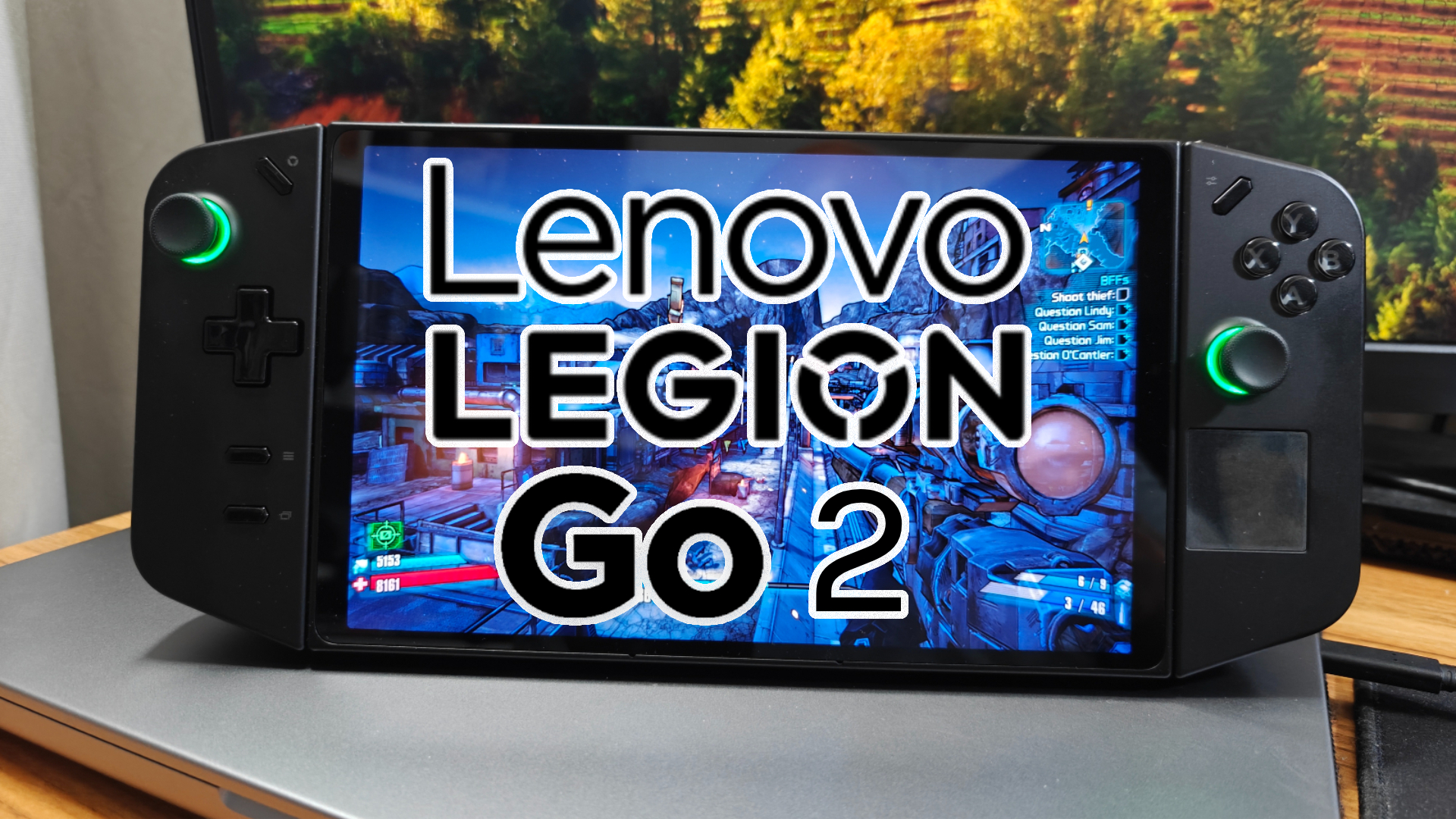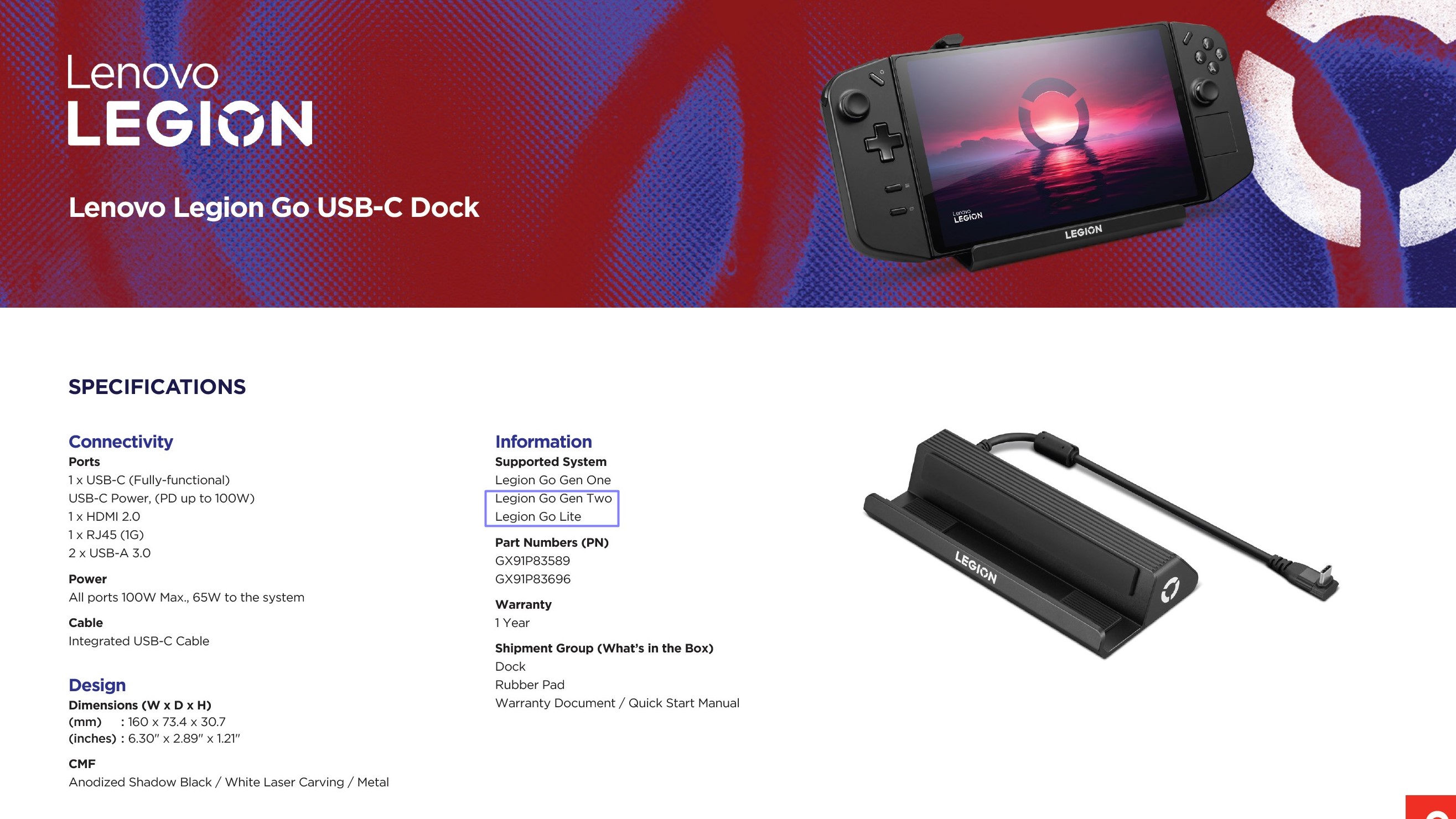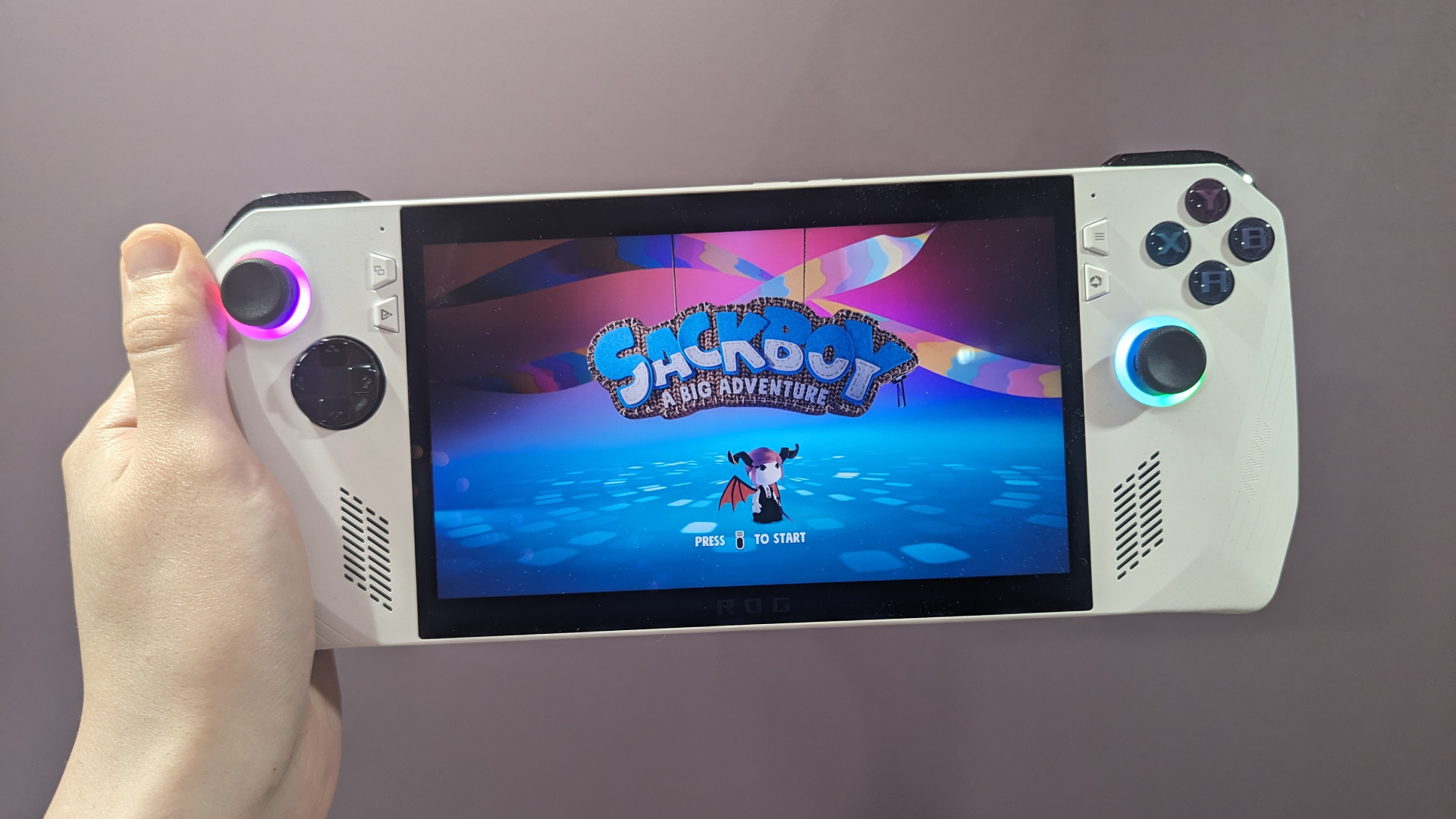
The Lenovo Legion Go launched in late 2023 to much acclaim, praised for its 2.5K resolution display and detachable controllers, which made it stand out when compared to similar products in the market. And now, it seems that the company has already confirmed that a successor will be made.
During the Lenovo Innovate 2024 conference in Thailand, as covered by VideoCardz, Lenovo Gaming Category Manager Clifford Chong said that the "product category" of handheld gaming PCs is something they will "continue to invest in" and they are "looking towards when the time comes right" to have "the next generation to provide even more features." Alongside how "there are still engineering efforts to try to bring the next wave of features to the product."
And more recently, Lenovo confirmed that the Lenovo Legion Go Gen Two and Legion Go Lite do exist. The company published a product slide highlighting the Lenovo Legion Go USB-C Dock and it directly references the aforementioned products.
Everything we know about Lenovo Legion Go 2

It's pretty evident that the company is still investing heavily in the technology, with Chong even mentioning in the interview that they are "the largest gaming handheld" alongside it "being received very well." This seems especially true in Asia, with him going so far as to say that Lenovo is "heartened by the response" by the markets they've launched in.
But the ultimate question still boils down to when. Asus ROG Ally X launched in 2024, likely implying the start of a yearly pattern for the company with its hardware launches, similar to how many of the best gaming laptops of 2025 release.

However, for the Lenovo Legion Go, it's entirely possible that the company will opt for a biennial pattern, launching one new gaming handheld every two years. Or maybe even alternating seasons by putting a year and six months between each release.
After all, even if Asus didn't launch a great refresh model of the Ally in 2024, competitors don't necessarily need to follow. Steam Deck had a nearly two-year gap (more like a year and nine months) between its first and second iteration, and even then, the latter was just an OLED model with a few improvements.
So even if the Legion Go's successor launched this year, what would that look like? Will it be a minor upgrade akin to a middle-of-the-generation shift with a better display and maybe more storage, or will it feature newfound processing power utilizing AMD's latest mobile chips? Only time will tell, but as the resident handheld gaming nerd, I'm excited.
However, considering all we've seen so far, you might want to hold off on purchasing a new Windows gaming handheld until 2025.







